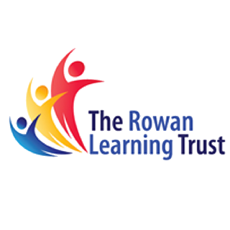Art and Design
Mission Statement
To ensure that every child is able to explore their own personal artistic style and continue to develop and build on their skills in order to represent their own unique characteristics effectively. Our children will learn to apply and use a range of media in various ways, persevering when faced with a challenging aspect of Art, developing their confidence and enabling their creativity to flourish and continue into secondary education and adulthood.
Intent
At Plantation Primary School, we believe that all children should be supported through the teaching and learning of Art and Design with the development of their motor skills, language skills, social skills, decision-making, risk-taking, and creativity, ensuring that all our children are given equal opportunities to gain the skills and knowledge required for their future learning in high school and beyond.
We stimulate and develop children’s creativity by providing visual, tactile, and sensory experiences to encourage their understanding of the world. Children therefore develop an understanding of colour, form, texture, pattern and their ability to use materials and processes to communicate ideas, feelings, and meanings.
Our art and design curriculum covers a range of artists, styles and genres. Our art and design lessons look to build on prior learning, can be connected to a wider context (historical or geographical, for example) and provide opportunities to further develop their skills.
Teachers in our school help children to think critically about art and design through open questions and ensure the subject matter is broad, by including a range of diverse artists. We believe children need to understand that art is made by all sorts of people, in a variety of ways, and should feel represented by the art and artists they are exposed to.
We have identified the appropriate vocabulary that needs to be used throughout the teaching of our curriculum to ensure that our children leave the primary phase with a solid understanding of the key terms used within different areas of Art and Design
We use an ‘end point’ assessment system to assess the progress our children have made and to therefore inform future teaching and learning.
Implementation
At Plantation Primary School, children experience a variety of approaches to learning with a range of media as described in the Programme of Study in the National Curriculum for Foundation stage, KS1 and KS2.
We explore the work of different artists, craftspeople & designers and their own lives in different times and cultures, and use reference books and the internet as sources of information to find out about art, craft and design. Children are taught to discuss and explore their ideas about their starting point in their work and compare their own and other’s work throughout each key stage.
Art is delivered as a standalone subject to ensure enough curriculum time is devoted to it and to support children to recognise what Art lessons are and what Art consists of. In order to ensure we can thoroughly explore a topic, 3 topics a year are taught per year group, over a full week for each topic.
Art will have cross curriculum links to History, Geography and Computing, and our long term plans show the art provision from Year 1 to 6, and how skills progress throughout the school.
Art and Design is monitored and assessed throughout school in each year group once every term. Monitoring and assessment of the subject informs future planning, ensuring individual children build on their knowledge and understanding, and key skills within the subject. ‘End Points’ are completed by each class teacher at the end of each unit of work, monitoring progress to support teachers with assessment of the subject. Children use sketchbooks to develop and record their ideas throughout each key stage, as a record of achievement for themselves. Throughout each unit of work, children are asked to evaluate their own work and the work of others in a constructive and supportive way, enabling children with the skills to set their own targets within the subject.
Impact
Each topic which forms our programme of learning and teaching in Art sets out clear objectives and outcomes for the pupils in terms of their knowledge and understanding and skills acquisition. These outcomes are listed as ‘Core and Additional End Points’ i.e. the criteria against which a pupil will be judged to be making good progress. Each topic in KS1 has 12 end points (3 core and 9 additional) and each topic in KS2 has 24 end points (6 core and 18 additional). These end points identify the skills and knowledge that our children should learn, demonstrate and recall after a topic has been completed.
Progress and assessment will be formative and ongoing, measured against the end points. Evidence is drawn from a wide range of sources to inform the process including interaction with pupils during discussions and related questioning, practical activities and written evaluations of children’s own work. We do not make summative judgements about individual pieces of pupil work but rather use these formative assessments to build an emerging picture of what the pupil knows, understands and can do in relation to the end points of learning. Consequently at the end of each enquiry a teacher is able to make an informed and confident ‘best fit’ judgment.
Assessment data will be collected at the end of each unit with children being assessed against the end points. This data will be used to revise and improve the art curriculum.
Impact of the subject will be monitored through book looks, pupil voice and learning walks. Subject moderation and assessment data will be used to inform the art development plan.
Art Vocabulary
Please click here to view our School's Art Vocabulary document.
Art & Design Policy
Please click here to view our Art & Design policy.
(By clicking the above links you will be redirected to a website called TheSchoolBus)
Useful websites
https://www.bbc.co.uk/bitesize/subjects/zmyvcxs
https://www.bbc.co.uk/teach/ks2-art-and-design/zd4jscw
https://www.youtube.com/c/RobBiddulph72/videos

